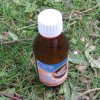How to avoid food poisoning
Interview with
The stomach is a biological vat of acid that’s a very effective defence mechanism against infection. But some bugs do get through, and - once in the intestines - can cause the kind of symptoms that most people refer to as “food poisoning”; millions succumb every year. Speaking with Kat Arney, Paul Wigley, infection biologist at Liverpool University about what food poisoning is...
Paul - It can be one of two things. In the real strictest sense, food poisoning is getting a toxin within food usually due to poor storage or poor handling, and this is typically quick onset diarrhea or vomiting but fairly short-lived. With the exception of botulism, which is very serious, these don’t tend to be particularly serious conditions.
但第二,更严重的是甲型肝炎e an infection, usually by a bacteria like Salmonella or Campylobacter that can can survive very well the passage through the stomach, colonise the gut, and cause damage within the gut leading to more prolonged, and often more serious - gastroenteritis, diarrhea, vomiting and, in some cases, this can be life threatening.
Kat - So you’ve got the ‘in and out’ kind of food poisoning that’s caused by toxins, so that’s things that have been produced by bacteria, but it’s not the bacteria themselves?
Paul - Not the bacterial themselves. That’s the one I would call the ‘dodgy takeaway’ diarrhea rather than something rather nasty from meat, eggs or…
Kat - So having a rough night and you’re better in the morning! But then, in terms of the bacteria that do get in and set up an infection, how does that happen because the stomach is really acidic, how do they manage to survive and get into our body and cause us harm?
Paul - Well, they’ve got a lot of challenges. The stomach is one of the first ones they have to deal with and the stomach is very acidic. If you think, we have a long tradition of using vinegar - which is about the same acidity as the stomach - to preserve food because it kills bacteria. Now enteric bacteria (those able to infect the gut), have developed mechanisms where they can adapt to acid conditions and they do two things. Firstly they can change the surface of the bacterial cell to make them far less susceptible to the hydrogen ions that cause the acidity. And secondly, they can pump out the hydrogen ions from inside the bacterial cell thereby allowing them to maintain a more neutral pH within bacteria.
Kat - So once they’ve got through our defences like that they go down into the intestine. And just quickly, how do they actually make us ill? How do bacteria in our intestine makes us sick if our intestine’s so full of bacteria anyway?
Paul - Well obviously, the intestine’s full of bacteria so they have to be able to compete against the microbiota that’s already there and usually they have to attach to the side of the intestine. So they usually have projections like flagella or fimbriae, which allow to the enterocyte (the cells of the gut).
在那里他们可以做two things - they can produce a toxin, so things like traveler's diarrhea caused by a type of Escherichia Coli - E. Coli is an enterotoxin. But things like Salmonella and Campylobacter tend to cause damage to the cells. They actually inject proteins into the cell, changes their structure and function that leads to inflammation. This causes damage to the gut which is very painful; very uncomfortable and can also lead to diarrhea, fever, and vomiting.
Kat - Oh. You’re giving me flashbacks to when I had a horrendous gut infection a year ago! But we’re getting towards BBQ season, which is a common way that people do end up accidently picking up food poisoning - what should people do to minimise their chances of getting either the toxin-based food poisoning or picking up nasty germs?
Paul - It’s very important to handle the food very well within the kitchen or, indeed, if you’re cooking a BBQ. If you handle food you have your fingers all over it, you’ve got those bacteria on your skin, several of which can produce toxins and cause diarrhea.
Kat - And presumably people not washing their hands after they’ve been to the toilet and things like that?
Paul - Absolutely, yes! I have two children and it was a constant battle when they were younger to get them to do that. But, I guess, the biggest problem where we think of a BBQ bacteria like Campylobacter, which are very prevalent in chicken within the UK, there you really need to make sure that you handle meat with respect. You’ve got to consider that there’s a high chance of chicken having Campylobacter upon it, avoid cross-contamination in the kitchen, and if you’re cooking chicken on the BBQ make sure it’s cooked through; make sure it’s not pink in the middle. And the other thing is don’t wash chicken before cooking it because all you’re going to do is create an aerosol of Campylobacter in your kitchen and two or three days later you could be well regretting that.



Comments
Add a comment